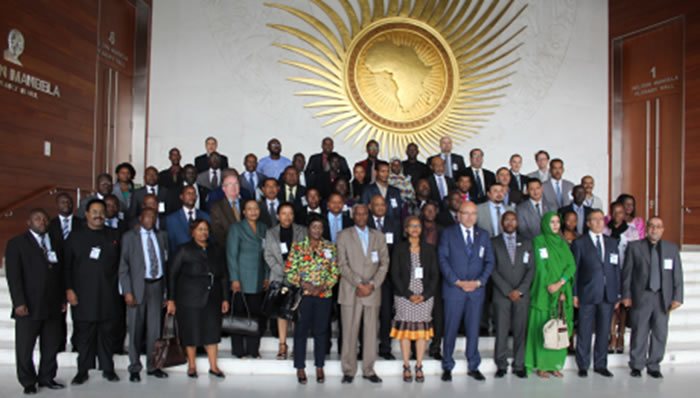African Union Trade Experts meeting in Addis Ababa from 8 to 10 May 2015, considered UNCTAD's suggestions on policy and negotiation options for building the African Continental Free Trade Area (CFTA)
In June 2015, the African Union (AU) Summit is expected to adopt the negotiating guidelines and roadmap for the creation of the African Continental Free Trade Area (CFTA) by 2017.
In preparation for this, the AU Commission (AUC), in collaboration with regional and international organizations, including UNCTAD, carried out technical analyses and held intergovernmental discussions to prepare the negotiating guidelines and roadmap.
UNCTAD participated in a dedicated meeting of AU Trade Experts in Addis Ababa from 8 to 10 May 2015 to consider the objectives and principles for CFTA negotiations, and the associated roadmap and schedule for the setting up of the CFTA. The Trade Experts recommendations would be submitted to Senior Officials who would then recommend them to Trade Ministers.
UNCTAD presented a summary of the main policy suggestions on the scope, objectives and principles of the CFTA as well as institutional supportive arrangements that emerged, inter alia, from four studies commissioned on intra-African trade in goods, services, agricultural value chains and institutional arrangements, as inputs from AUC and ECA.
Five main suggestions on the way forward in strengthening the CFTA were made by UNCTAD that were generally supported by the Trade Experts.
UNCTAD's suggestions for the African Continental Free Trade Area
|
A development oriented and people centre CFTA can foster African growth and transformation in the post 2015 period.
Further analytical studies were requested from UNCTAD, AUC and UNECA on the following issues:
- Suggestions on mechanisms for balancing gains from the CFTA, including on neutralizing fiscal losses, drawing ideas from existing experiences in African as well as from successful examples outside Africa such as in the case of the EU.
- A focused study on costs and benefits of CFTA for SIDS, LLDCs and LDCs.
- A dispute settlement mechanism.
- An investment agreement.
- A competition policy framework.
- The technical details of liberalizing trade in goods.




